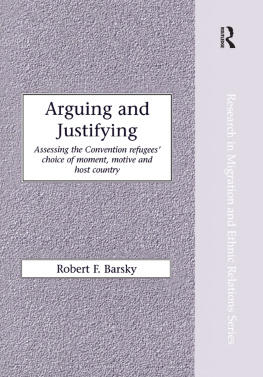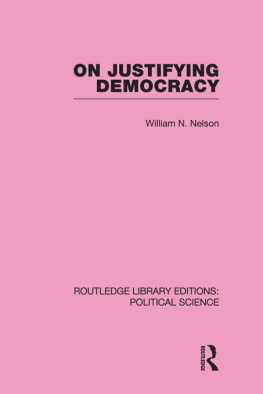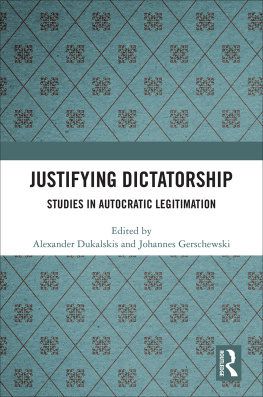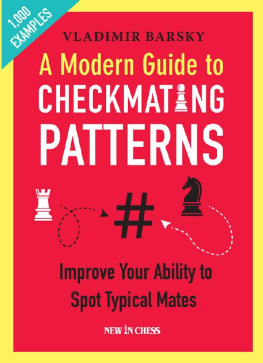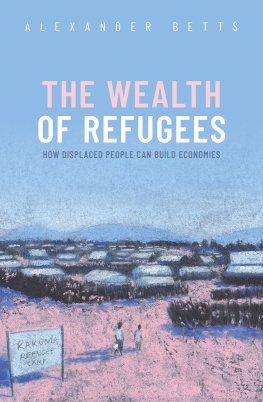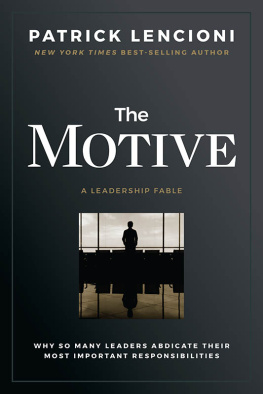First published 2000 by Ashgate Publishing
Published 2017 by Routledge
2 Park Square, Milton Park, Abingdon, Oxon, OX14 4RN
711 Third Avenue, New York, NY 10017, USA
Routledge is an imprint of the Taylor & Francis Group, an informa business
Copyright Robert F. Barsky 2000
All rights reserved. No part of this book may be reprinted or reproduced or utilised in any form or by any electronic, mechanical, or other means, now known or hereafter invented, including photocopying and recording, or in any information storage or retrieval system, without permission in writing from the publishers.
Notice:
Product or corporate names may be trademarks or registered trademarks, and are used only for identification and explanation without intent to infringe.
British Library Cataloguing in Publication Data
Barsky, Robert F.
Arguing and justifying: assessing the Convention refugees choice of moment, motive and host country. - (Research in migration and ethnic relations series)
1. Refugees - Legal status, laws, etc. - Canada 2. Refugees - Government policy - Canada
I. Title
325.2'1
Library of Congress Control Number: 00-134471
ISBN 13: 978-0-7546-1481-4 (hbk)
I owe significant debts of gratitude to a large number of persons and organizations who have participated, in various ways, in this project. First, there are four prime movers who deserve special mention: Marc Angenot, for the theoretical apparatus relating to discourse; Noam Chomsky, for the political undercurrents that direct my work; Denise Helly, for all questions methodological, sociological and anthropological; and George Szanto, for the mysterious and critical area of storytelling.
A host of (refugee) lawyers and researchers offered assistance and guidance on a range of issues, notably Professor Deborah Anker (Harvard Law School Immigration and Refugee Clinical Program at Cambridge and Somerville Legal Services), Me P. Beauchemin, Prof. Marie-Claire Belleau (Universit Laval Law School), Patricia Bittar (Groupe de recherche ethnique, Universit de Montral), Me Marie-Louise Ct, Me Jean-Franois Goyette, Professor Julius Grey (McGill Law School), Richard Janda (McGill Law School), Professor Nancy Kelly (Harvard Law School and Somerville Legal Services), Professor Andre Lajoie (Groupe de recherche ethnique, Universit de Montral), Professor Thomas Spijkerboer (University of Amsterdam and Nijmegan Law Schools), Me Sylvie Vartian, John Willshire (Harvard Law School and Somerville Legal Services), Chin-Chin Yeh (Harvard Law School and Somerville Legal Services), and Carol Younes (McGill Law School and Project Genesis, CLSC). I received significant inspiration for language issues as they relate to law from Mona Baker, Walter Klin, Teun Van Dijk and Jef Verschueren. Members of the Oxford University Refugee Studies Programme, notably Barbara Harrell-Bond, inspired work that was done for this book, and Guy Goodwin-Gill, James Hathaway and Gil Loescher have undertaken tremendously inspiring work which I keep close at hand for constant reference.
Members of various non-governmental organizations in Canada made valuable contributions and suggestions, notably Nancy Worsfold and other members of the Canadian Council for Refugees, and Rivka Augenfeld and other members of the Table de Concertations sur les Rfugis.
Me Goyette suggested that interpreters play an important role as intermediaries; these interpreters, Lucy Corbett, Ejaz Rana, and Marcella Ddios, were crucial to the success of this project.
Numerous persons in Israel offered their time and assistance to the tortured area of refugee claimants from that country; I owe a special debt of gratitude to Howard Adelman, who worked through the Israeli materials, Dorit Karlin, Deputy Minister of Absorption, Nadau Aner of the Prime Ministers Office, Arnon Mantber, Sachnut, Boaz Schwieger, Sachnut, Eva Halahmi, French-Israeli Cooperation, as well as Eva and Henry Abramovitch.
Persons in the area of refugee policymaking and coordination in Brussels were also very generous with their time, notably Dennis DeJong, of the European Commission, Gilbert Jaeger, President, Comit belge daide aux rfugis, and William Lundy, of the Canadian Mission to the European Union. I was in Brussels working with Michel Meyer at Philosophy Institute and the European Center for the Study of Argumentation, and most of the first draft was written during this period.
Michael Holquist offered me a Visiting Fellowship to Yale University during the final revisions of this manuscript and inspired a whole series of ideas relating to this work, and to future projects. Im also indebted for input and discussions with a range of people at Yale, notably Peter Brooks of the Whitney Humanities Centre, as well as Professors Paul Kahn and James Silk of the Orville H. Schell, Jr. Center for International Human Rights, and Vilashini Coopan, Comparative Literature. Im grateful as well for comments by Yale faculty and students on materials related to this project, notably Beatrice Lucinda.
The University of Western Ontario has been a source of critical resources for a number of years; I owe special debts of gratitude to Clive Thomson for his friendship and his much-appreciated input, to Elizabeth Harvey for inspiring dialogue and exchange, to Henri Boyi and Josias Semujanga with whom I hope to continue such work far into the future, and to Bill Bridger, Patrick Deane, Paul Gaudet, Jim Good and Kathleen Okruhlik for financial support. Student assistants, notably, Aharmeen Ahmed, Elizabeth De Freitas, Julian Holland, Nancy Ray, Tyler Tokaryk and Margaret Toye, all provided invaluable assistance with the final revisions of the text.
Thrse Lesprance (Institut national de la recherche scientifique, INRS, formerly Institut qubcois de la recherche sur la culture, IQRC), and Hlne Dandurand (INRS) helped with the complex bureaucratic tasks associated with this project, and they also transcribed and assembled materials pertinent to the bibliography. Louise Gauthier of the INRS, and a host of reference librarians at Harvard University, McGill University, Oxford University, the University of Western Ontario, and Yale University made innumerable efforts on my behalf to track down relevant research materials.
CESAC, now of Heritage Canada, provided the major funding for this project, and the Qubec Ministre des Affaires internationales, de lImmigration, et des Communauts culturelles, the Institut national de la recherche scientifique: Culture et socit (INRS), and the University of Western Ontario offered further funding as well as valuable resources. The Social Sciences and Humanities Research Council post-doctoral fellowship provided me with the resources to study and work in Brussels and to travel for research and talks. Ashgate Press has been a model of editorial and productive efficiency. Finally, and once again, my thanks to Yzabelle, who has read and commented upon this text in its many forms, and to Benjamin and Tristan, who are at the very root of what makes such endeavours meaningful.

